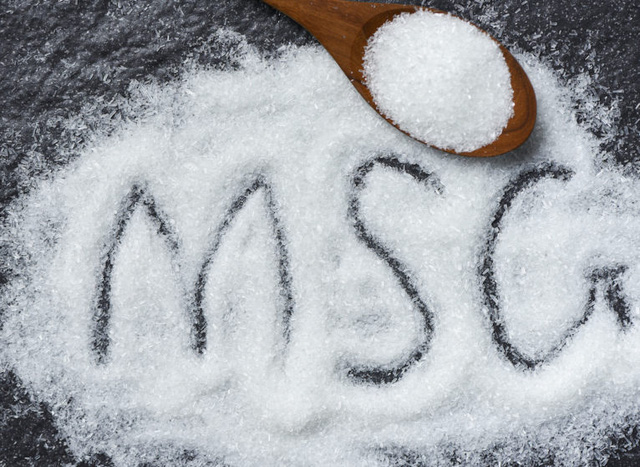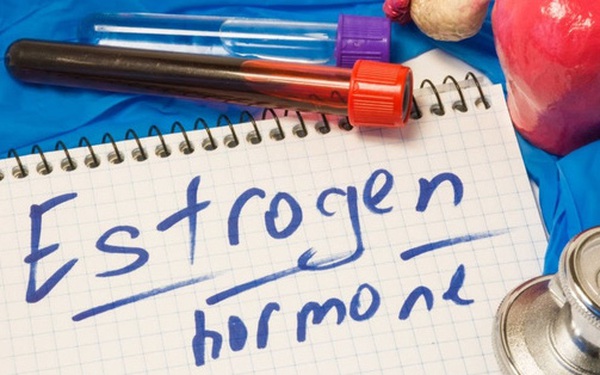The truth is that MSG / MSG is harmful to health
What is MSG?
MSG is also known as MSG, the English name is monosodium glutamate. Monosodium glutamate is a sodium salt of glutamic acid. MSG readily dissolves in water, disintegrating into sodium and free glutamate.
Glutamic acid or glutamate is an amino acid that is very common in many plants and animal proteins. According to the author of food history and food science Harold McGee on the famous PBS TV show the Mind of a Chef (USA), we like to eat tomatoes because tomatoes have more glutamate than vegetables. other tubers. The cooking process breaks down proteins into many amino acids including glutamate.

Glutamate can exist in some foods of natural origin.
Glutamic acid is a non-essential amino acid, which the human body can produce on its own without getting it from food. The body also cannot distinguish between the two types of glutamic acid naturally available in food and processed glutamic acid added to food in the form of monosodium glutamate, when the chemical properties of the two are similar.
In the human body, glutamic acid performs many tasks such as protein formation. Glutamic acid is one of 20 amino acids that make up the body’s proteins. In addition, glutamic acid is also a precursor to gamma-aminobutyric acid (GABA), a neurotransmitter abundant in the nervous system. GABA plays an important role in suppressing stress or signaling us to be calmer.
The birth and production process of MSG
MSG is white, bright like salt. In 1908, a professor at the University of Tokyo (Japan) first extracted monosodium glutamate from seaweed.
Currently, MSG is usually produced by fermenting starch, cane sugar or molasses. The fermentation process is similar to that used to make vinegar, wine, and yogurt. This process produces natural MSG which is then refined and dried. The resulting crystal structure will easily dissolve in the cooking process, increasing the flavor of the dish.

MSG has the code E621 in the food industry. In addition, MSG is also available in other codes from E620 to E625:
– E620: glutamic acid (glutamic acid)
– E621: sodium glutamate (monosodium glutamate)
– E622: potassium glutamate (monopotassium glutamate)
– E623: calcium diglutamate (calcium diglutamate)
– E624: ammonium glutamate (monoammonium glutamate)
– E625: magnesium diglutamate (magnesium diglutamate)
The uses of MSG in food
According to a 2017 study, we humans have been using MSG to flavor our food for over 100 years. Some people in Japanese culture consider MSG (or umami) as one of the five basic tastes in food science (the other four being sweet, sour, salty, and bitter). Many specialty dishes in Japan, China, and South Asia use MSG.
According to a 2018 study, MSG can be present in the following foods:
Frozen meals and processed meats such as: bacon, smoked beef pastrami, sausages, salami, pepperoni sausage (American version of salami), smoked meat products. Sauces and salad dressings such as ketchup, mayonnaise, barbecue sauce, salad dressing, soy sauce, mustard. Soup broths such as soup broths in the form of soup tablets and soup broths in fine powder form. Snacks like french fries. Seasoning powder (like salt, pepper) Muscle building protein powder Fast food: fried chicken nugget chicken nugget, burger, fried chicken

Some processed foods contain MSG (Photo: Youtube)
Is MSG safe?
According to the classification of the US Food and Drug Administration (FDA), MSG is a food additive “generally recognized as safe” (generally recognized as safe-GRAS). However, the use of MSG remains controversial, so the FDA requires manufacturers to list MSG on the packaging if the food contains MSG.
Similar to the FDA, major health agencies in the world such as the Expert Committee on Food Additives of FAO and WHO-JECFA, the European Food Safety Association (EFSA) consider MSG to be generally safe. .
According to Medical News Today, there is not enough evidence to prove an association between MSG consumption and reported side effects. The researchers could not conclusively conclude that MSG caused the reactions in these reports.
Safe levels of MSG
According to an investigation by the Federation of American Societies for Experimental Biology (FASEB) into adverse reactions when taking MSG, side effects may only occur in people with sensitive populations and those who consume more than 3 grams of MSG without food.
A typical serving of MSG contains only 0.5g of MSG, so side effects after standard meals are unlikely.
Major health authorities in the US and around the world such as FDA, JECFA, EFSA define the acceptable daily MSG intake as 30mg/kg body weight per day (calculated as 1.5g/day for a person weighing 50kg). This level is much higher than the amount of MSG you would consume in a normal diet.
Doubt of history
The first time MSG was considered potentially harmful to human health was in a letter that the Chinese doctor Robert Ho Man Kwok sent to the New England Journal of Medicine in 1968. Dr. Kwok said that after eating Chinese food, he noticed a rapid heartbeat and numbness in his neck, back and arms.
These symptoms have been named by the New England Journal of Medicine as “Chinese restaurant syndrome” (Chinese restaurant syndrome) Currently, the term “Chinese restaurant syndrome” is outdated, replaced by the term MSG Symptom Complex, which is commonly known as MSG intoxication.
Although Dr. Kwok writes that his symptoms could be the result of a number of dietary factors such as sodium, alcohol and MSG, MSG was highlighted by him as the main cause.

Chinese restaurants in the US tend to use a lot of noodles in their cooking.
Alleged health reactions
Over the years, various reasons have been given as to why MSG can be harmful to human health. However, there is not always enough scientific evidence to prove those claims to be true.
Brain damage
The belief that MSG causes brain damage may stem from a 1969 study. The content of the study was the effect of injecting MSG into newborn rats in large doses. According to the investigators, MSG causes nerve cell death in several areas of the developing brain. For example, MSG damages the hypothalamus, an area that plays an essential role in maintaining homeostasis.
However, comparing the effects of injecting large amounts of MSG into newborn rats with the effects of humans consuming small amounts of MSG from food on the digestive system is lame.
The hypothalamus is a structure in the medial brain that controls the pituitary gland and instinctive sensations such as hunger, thirst, emotion, body temperature regulation, and circadian rhythms. Homeostasis is the tendency of organisms to self-regulate and maintain a steady state internal environment.

Fat
Some people believe that MSG can cause obesity.
According to a 2011 study of more than 10,000 Chinese adults, MSG caused participants to gain weight even when they were not consuming processed foods or were not physically inactive.
However, according to a systematic review study in 2017, this result may be due to the fact that MSG has an effect on someone when he eats too much MSG. Moreover, a 2010 study concluded, MSG does not cause obesity at all.
The thing is, we may be tempted to overeat because MSG makes foods taste better. Some evidence suggests an association between MSG and obesity but this may be because MSG makes foods taste better.
Headache
Many people say they get headaches after eating foods containing MSG.
However, according to a 2016 review, there is no evidence to support a link between MSG consumption and headaches. MSG was previously mentioned on the International Headache Society (IHS) list of headache triggers but was removed from the list in 2018.
Public health master Zia Sherrel says the evidence that MSG causes headaches is just anecdotal.

Cancer
Historically, some people believed there was a link between MSG consumption and cancer risk.
However, according to a 2017 systematic review, no studies have confirmed this link since the 1960s.
As such, there is no evidence that MSG can cause cancer.
Asthma
Some people have reported experiencing asthma attacks after eating MSG.
It seems an older 1987 study confirms this. In the study, scientists gave 32 people a large dose of MSG, after which 40% of them had an asthma attack.
However, more recent studies, such as a 2012 study on the link between MSG, diet, and asthma in adults and a 2012 study on MSG and asthma in humans adults and children, did not find a correlation between asthma and MSG consumption.
It is also important to reiterate that studies involving high doses of MSG may not be reliable in real-world settings. According to the FDA, it is unlikely for a person to consume enough MSG from food to experience any side effects.
MSG sensitivity
According to a 2019 review, some people have reported being overly sensitive to MSG.
The New York Allergy and Sinus Centers have stated that this is more of a sensitization than an allergy. Symptoms of sensitization may include:
– Distention
– Flatulence
– Diarrhea
– Headache
– Stomachache
– Itchy skin
The amount of MSG in food will not be enough to cause a serious adverse reaction. Allegations of MSG over-sensitization are based solely on people’s reports. Also according to the 2019 review above, there is not enough solid evidence to confirm an over-sensitivity to MSG. This review calls for more research into the sensitivities associated with both MSG in nature and MSG added in foods.
However, if a person feels that they have a MSG sensitivity or notices symptoms after eating a food containing MSG, they should stop eating it. Keeping a food diary can also help.
This article references a post by public health master Zia Sherrel on Medical News Today. Zia’s post has been medically reviewed by a certified nutritionist in the US.
Refer to Medical News Today, Healthline
Law and Readers
at Blogtuan.info – Source: cafebiz.vn – Read the original article here



